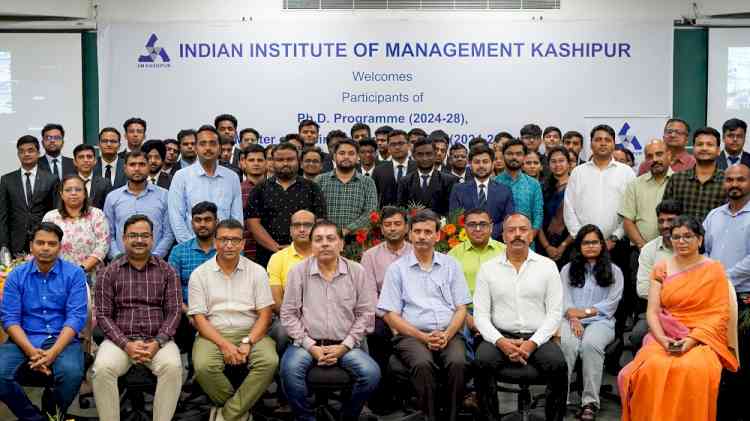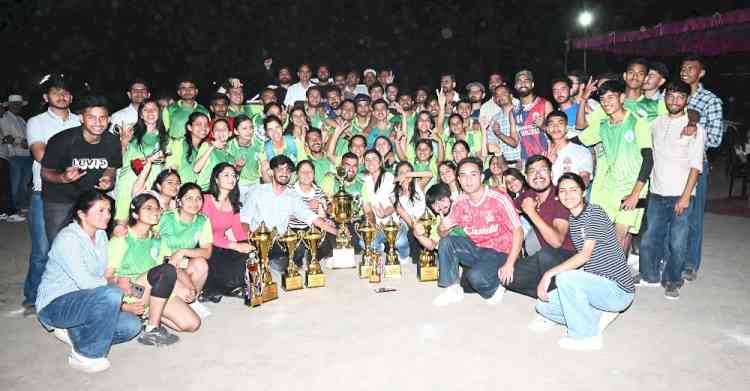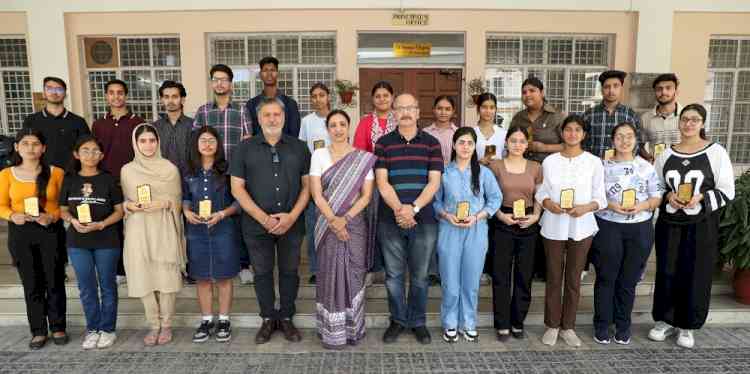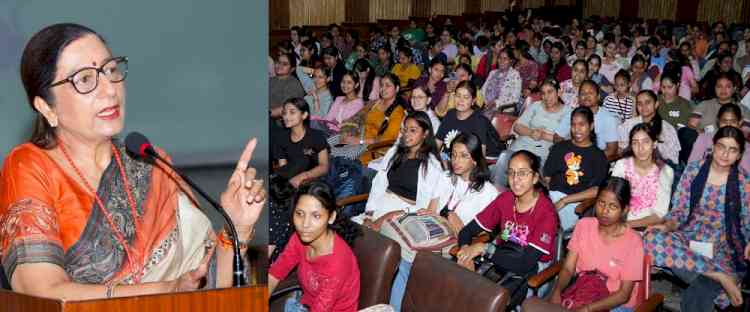With a jump of 7 per cent this year, IIM Kashipur’s new cohort has 42 per cent female students
The Indian Institute of Management Kashipur, one of the leading B-schools in India, is playing a pivotal role in bringing gender parity in male-dominated classrooms of business education.

• The institute recorded a jump of 7% in female students in comparison to the previous session.
• From 11% female students in 2019, the number surged to 42% in 2024. IIM Kashipur recorded a surge to 31% in female students in the last five years.
• One flagship course MBA – Analytics recorded close to 75% female students.
• IIM Kashipur inducted 471 students in the new batch of MBA and MBA Analytics.
• Uttarakhand’s SETU Aayog’s vice chairman Raj Shekhar Joshi gave a success mantra to the new batch.
Bengaluru, July 2, 2024: The Indian Institute of Management Kashipur, one of the leading B-schools in India, is playing a pivotal role in bringing gender parity in male-dominated classrooms of business education.
In its flagship courses, IIM Kashipur has recorded 42% female representation in the 2024-26 cohort overturning the gender equation of the campus that had admitted around 35% female students last year – a surge of seven percent in one year.
The new cohort of 2024-26, which was inducted last week in a three-day-long inauguration and orientation program, IIM Kashipur has admitted 196 female students out of a total of 471 students enrolled in its flagship course – Master of Business Administration (MBA) and Master of Business Administration – Analytics (MBA – A).
The MBA – Analytics cohort has 75% female students this session surpassing last year’s tally of 69% female candidates.
On the academic diversity front, the new batch comprises 37% of students from engineering backgrounds and 33% from commerce. Over 12 % come from science, 6% from arts and the remaining 11 students are from various backgrounds like medical, communication, and others. While the overall work experience of the batch is 13 months.
Prof. Abhradeep Maiti, Chairperson of Admissions, highlighted that not only is the institute successful in attracting next-generation leaders, but IIM Kashipur has also successfully conducted the 2024 Common Admission Process (CAP 2024).
On bridging the gender diversity gap, he said, “IIM Kashipur has seen exponential growth in female students in the last couple of years. From 11% female students in 2019, the new batch has 42% female students.”
As far as geographical diversity is concerned, the new batch has representation from 28 states, the highest from Maharashtra and Uttar Pradesh which recorded 63 students each.
IIM Kashipur’s director-in-charge, Prof. Somnath Chakraborti said, “Our students are our brand ambassador. The efforts we put in our students are paying off and not just the female representation, the number of applications is growing every academic year. I welcome all the students and thank them for making it to the IIM Kashipur campus.”
He highlighted that the first-generation IIMs that took decades to come to this stage, IIM Kashipur has done so in 13 years. “From gender to geographical diversity, ranking to tie-up with foreign colleges and universities, IIM Kashipur is making all efforts to become the top 10 IIMs of the country.”
Apart from MBA and MBA Analytics, 15 candidates were enrolled in the doctoral program out of which four are female.
Welcoming the new students, the Chief Guest Raj Shekhar Joshi, Vice Chairman of SETU Aayog Uttarakhand underscored the importance of leadership, technology, and the evolving role of think tanks and spoke on the challenges of digital transformation.
He said, “Identify the four key elements for successful management: authentic leadership with purpose, Collaborative Leadership, use of technology and energy or attitude.”
SETU Aayog stands for State Institute for Empowering and Transforming Uttarakhand (SETU) established by the Uttarakhand government replacing the Planning Commission of the state and modeled on lines of NITI Aayog.
Emphasizing the role of institutes like IIM Kashipur in contributing to significant and positive changes in India, he spoke on the challenges of the "Amritkal Period," underlining India's emergence as a world leader.
He also pointed out the importance of think tanks in policymaking and their roles in bridging connections between cities, states, and rural areas.
The inaugural program of the new batches (AY 2024-26) of MBA, MBA (Analytics), and Doctoral (PhD) programs of IIM Kashipur started with an orientation session conducted by the Institute between 27th to 30th June 2024, to assimilate new entrants with the academic and social life of the Institute.


 City Air News
City Air News 










